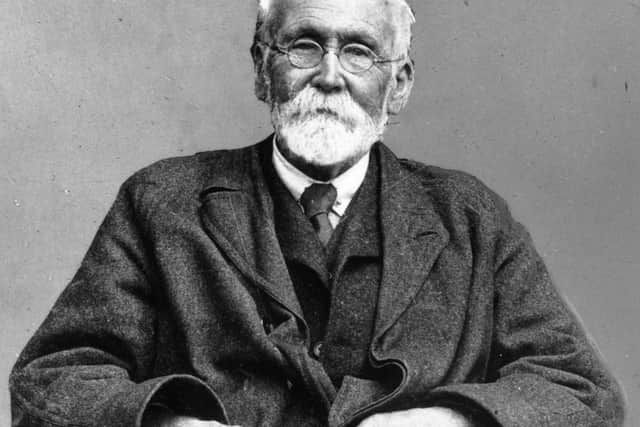Historic racial injustices exposed at York-based confectioners Rowntree Company, as charities say they are "appalled"


Heritage organisation the Rowntree Society has published a review which shows the company benefited from a practice known as colonial indentured servitude in the late 19th century.
This saw thousands of people from India and Southeast Asia recruited to work on plantations in Caribbean and West Africa where they worked unpaid until they had “worked off” the cost of their transportation.
Advertisement
Hide AdAdvertisement
Hide AdThe practice wasn’t abolished until the 1920s and the review shows that in the 1890s the Rowntree Company purchased several plantations with indentured workers in the British West Indies on the islands of Dominica, Jamaica, and Trinidad.
York-based charities and trusts that still bear the name of Joseph Rowntree, one of the region’s most celebrated philanthropists, said they were “appalled” at the review’s findings.
While there is no suggestion that Joseph Rowntree himself was aware or complicit, the review states that “it is clear that we need to confront uncomfortable questions about the Rowntree family and company’s participation in colonialism and racialised exploitative working practices.”
The review further found in the 1980s, the company’s South African subsidiary abused its black workforce, “including summary dismissal and forced unemployment to suppress unrest” during the period of apartheid.
Advertisement
Hide AdAdvertisement
Hide AdThe company was sold to Nestle in 1988 and still has a factory in York. Money from the company finances four charities and trusts linked to the Quaker Rowntrees’ anti-poverty work.


A statement from the Joseph Rowntree Foundation read: “We are deeply sorry that the origins of our endowment have roots in shameful practices that caused deep suffering and created enduring harms.”
While the leaders of all four Rowntree organisations have condemned the findings, they did admit that there was some awareness of historic racial injustices prior to the review.
Fiona Weir, chief executive of the Joseph Rowntree Reform Trust, said: “We really haven’t given attention to this part of our history.
Advertisement
Hide AdAdvertisement
Hide Ad“The Black Lives Matter protests in particular, and the way that Covid has thrown up massive issues with inequality within our society, means many organisations across the UK have started to think much more deeply about their own history, and have started out finding a lot of things that have always been there.”
Celia McKeon, chief executive of the Joseph Rowntree Charitable Trust, said: “As a Trust we are appalled by what we have learned about these abhorrent practices, which are at odds with our Quaker values and our commitment to building a more just society.”
The charities are commissioning academics at the University of York to do further research.
A spokesperson for Nestle said: "This is a very important piece of work that expands the well-known history of the Rowntree’s Company and recognises the significant impact of colonialism at the turn of the 20th Century.
“Nestlé is a diverse, global company that is firmly anti-racist and has zero tolerance for slavery. We will continue to learn from the actions of our predecessors.”
Comment Guidelines
National World encourages reader discussion on our stories. User feedback, insights and back-and-forth exchanges add a rich layer of context to reporting. Please review our Community Guidelines before commenting.